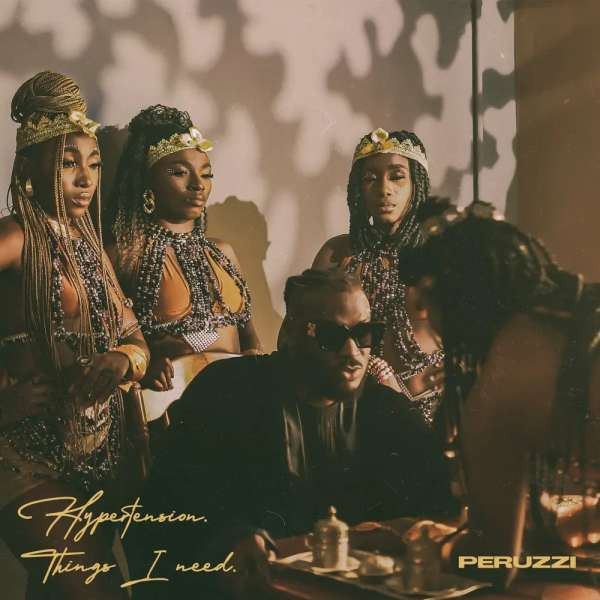Peruzzi’s “Sabali”: A Testament to Growth, Patience, and Musical Mastery
When Peruzzi released Sabali, it immediately became clear that this was not just another Afrobeats album it was a personal statement, a declaration of patience and growth from one of Nigeria’s most talented yet underappreciated voices. After a quiet stretch following Rum & Boogie, Peruzzi returned with a project that carried the calm confidence of an artist who had taken time to reflect, refine, and rediscover his purpose.
The album’s title, Sabali, borrowed from the Bambara word for “patience,” perfectly summed up its essence. It was an album that rewarded slow listening one that didn’t rely on TikTok virality or radio-friendly repetition. Instead, Peruzzi leaned into storytelling, vulnerability, and soul. It was a project born from stillness, not noise.
The opening track, Die It, set the tone beautifully. The cinematic strings, violin textures, and introspective lyrics introduced an album rooted in emotion and endurance. Peruzzi sounded at peace yet powerful, singing from the heart of someone who had seen the industry’s highs and lows and was now focused on legacy rather than validation.
Across 17 tracks, Sabali delivered a textured experience that showcased Peruzzi’s full range both vocally and creatively. It moved through moments of love, gratitude, hustle, and reflection, all tied together by his signature ability to make deep emotion sound effortless. The feature list was impressive, with appearances from Davido, Jesse Jagz, The Cavemen, Zlatan, JeriQ, Timaya, Mayorkun, Dremo, Terri, and Bella Shmurda. Each guest added flavor without overshadowing Peruzzi’s essence.
The chemistry between Peruzzi and Davido on Apala Drill reminded fans why their collaborations always resonate sharp, playful, and balanced. Mad Oh, featuring The Cavemen, was one of the album’s brightest moments, blending highlife warmth with Peruzzi’s melodic R&B flow. Tracks like Cooking Pot with JeriQ and Nuff Respect featuring Jesse Jagz gave the album its grit a reminder that Peruzzi could effortlessly bridge the street and the spiritual, the raw and the refined.
Production-wise, Sabali stood out for its richness and cohesion. The album’s soundscape was lush, moving confidently between Afropop, soul, highlife, and even drill without losing focus. Every beat felt carefully chosen, with live instrumentation, layered harmonies, and detailed mixing that gave the project real depth. It was a refreshing contrast to the overly polished, algorithm-driven pop that dominates streaming playlists.
Beyond the music, Sabali revealed a more mature Peruzzi a man comfortable with where he stood in the game. Gone was the urgency to chase the next viral hit. Instead, he focused on substance and meaning. His lyrics carried a quiet wisdom song about gratitude, perseverance, and grace. You could feel that this was an artist who had taken his time to heal, rebuild, and speak from experience.
Of course, Sabali wasn’t flawless. With 17 tracks and a long list of features, there were moments where it flirted with excess. A few songs might have landed stronger with tighter editing or fewer guest appearances. But even in its imperfections, the album’s heart remained intact. It felt human, authentic, and deeply intentional qualities that many Afrobeats projects today often sacrifice for commercial polish.
What made Sabali special was that it didn’t try to sound like everything else. It wasn’t designed for instant chart domination; it was built for longevity. Peruzzi embraced patience both as a theme and as a creative process and the result was a body of work that aged well even weeks after its release. Each listen revealed new layers, from the subtle background vocals to the emotional weight of his delivery.
In a scene that moves at lightning speed, Peruzzi’s approach with Sabali felt almost rebellious. He made music for those who still value craft, storytelling, and emotion music that lingers long after the hype fades. This album marked a new chapter in his artistry, one defined not by trends but by truth.
By the time the final notes faded, it was clear that Sabali wasn’t just an album title it was a philosophy. It symbolized patience, endurance, and the grace to evolve on one’s own terms. For Peruzzi, it was both a reminder and a revelation: that true artistry takes time, and that real music doesn’t beg to be heard it commands attention through honesty.
Sabali cemented Peruzzi’s place as one of Afrobeats’ most gifted songwriters and storytellers. It was an album that reflected growth, resilience, and quiet confidence a patient masterpiece from an artist who finally seemed at peace with his own greatness.


Leave a Reply